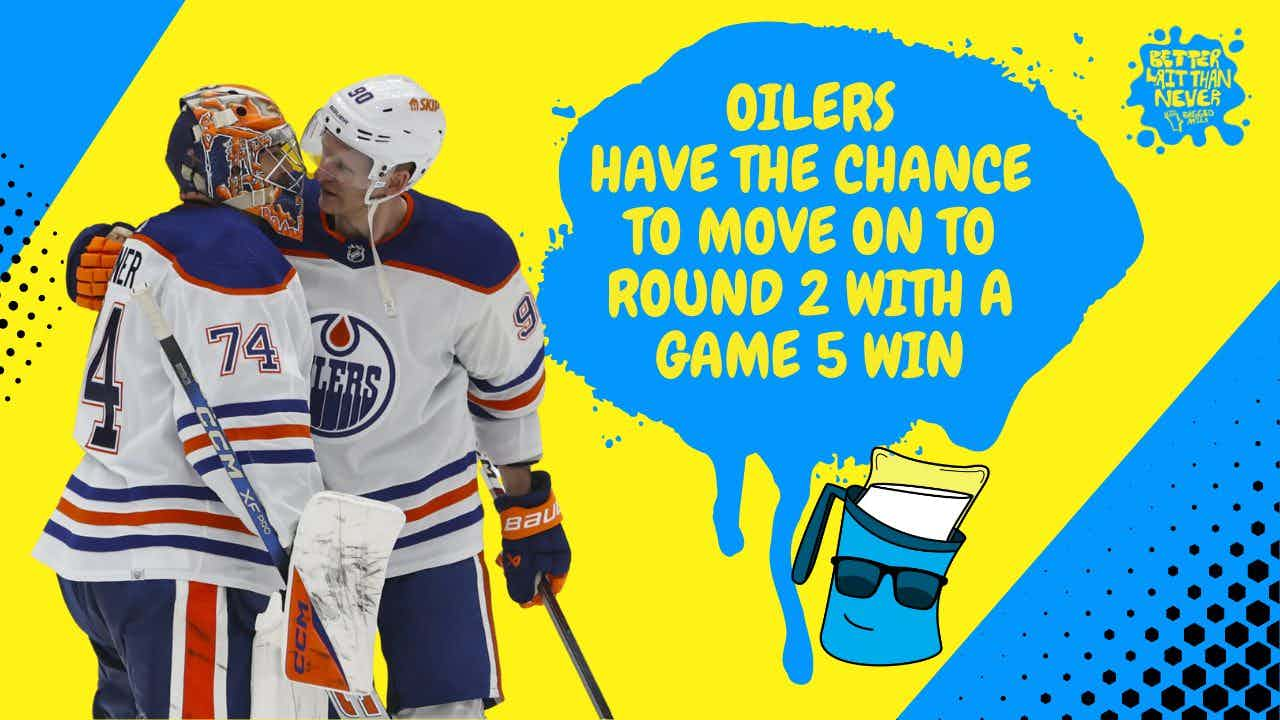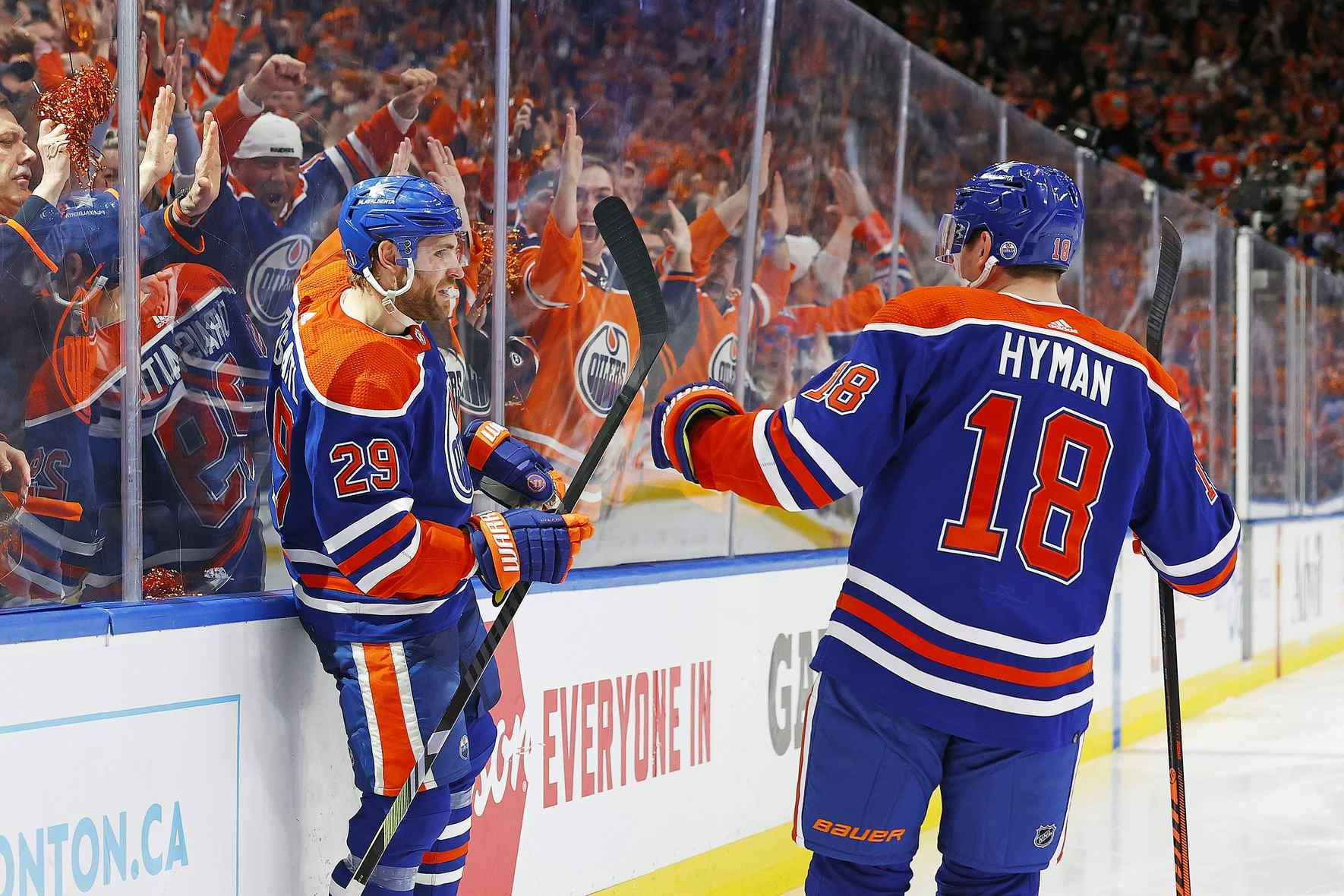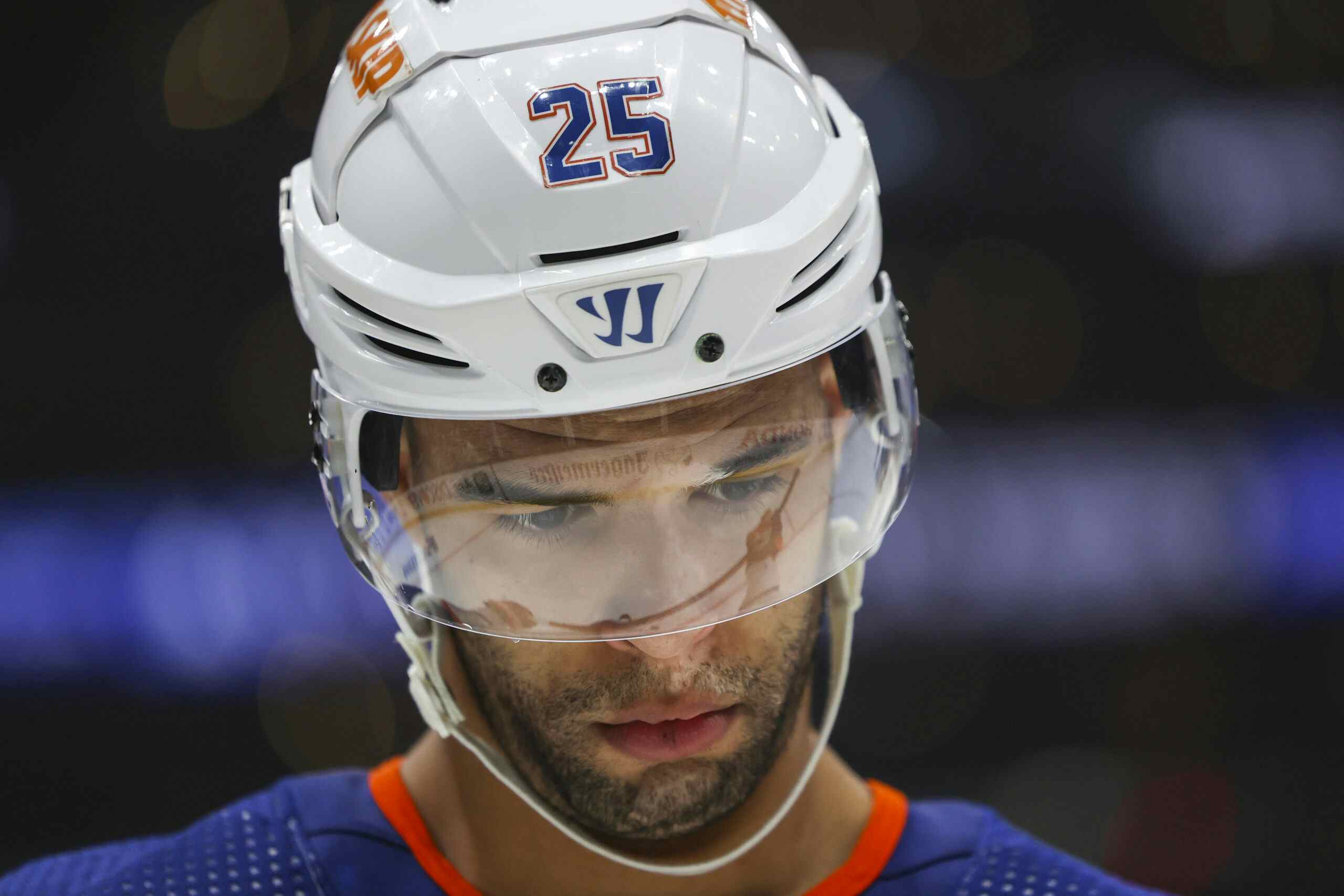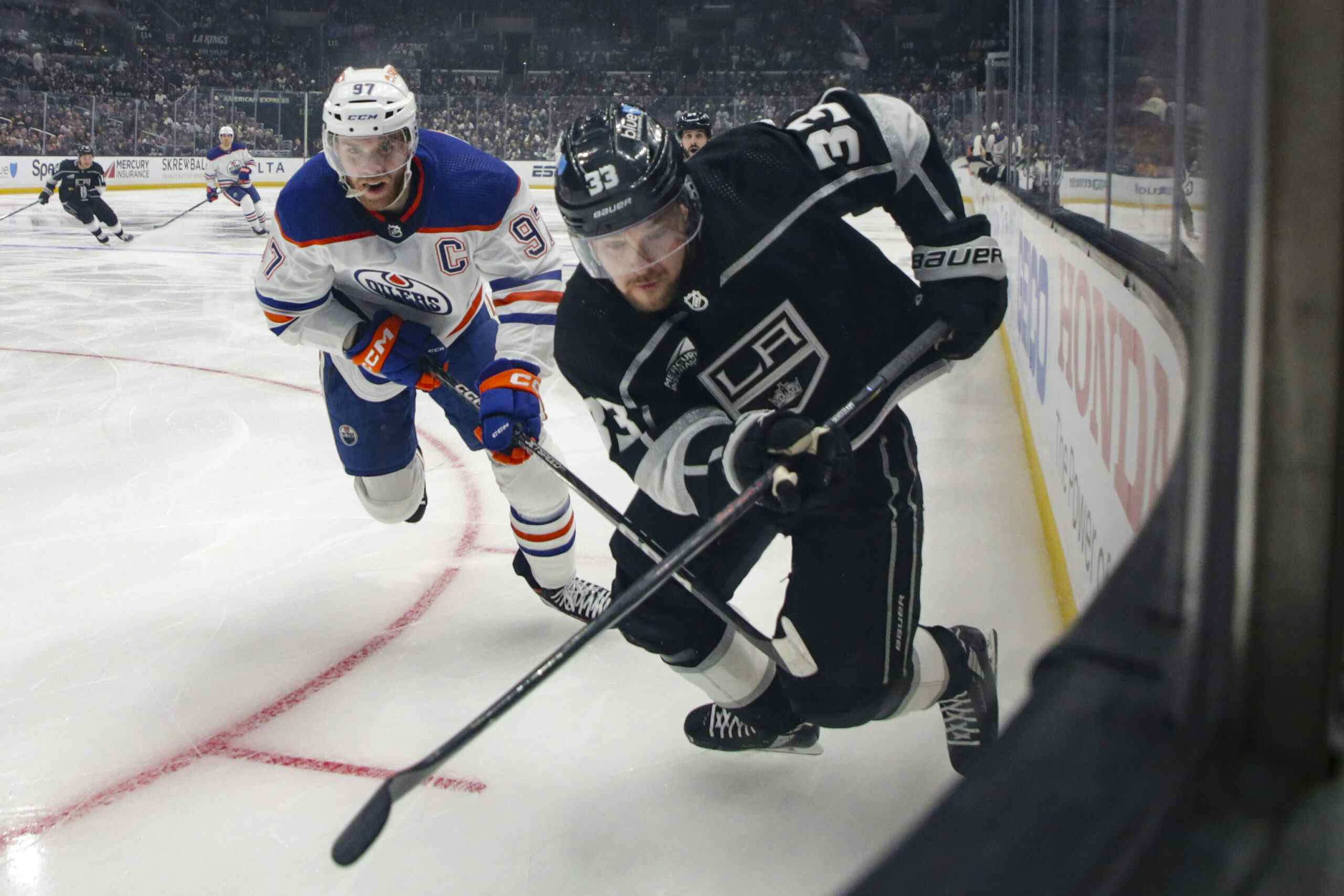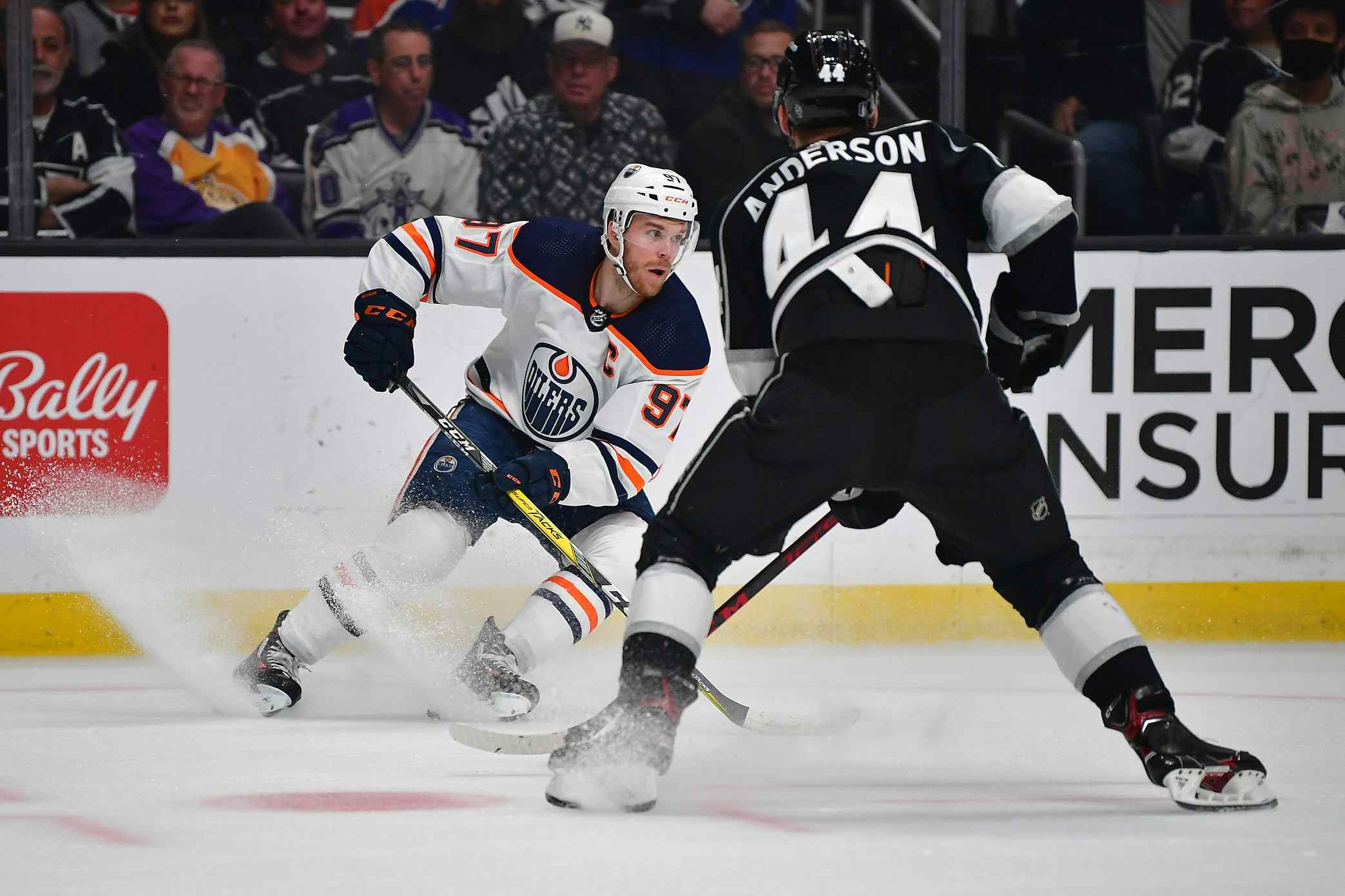THE WAY I SEE IT

The saying “hindsight is 20-20” holds a lot of truth for me. That’s why, knowing what I know now, I believe the NHL absolutely has to take the hit Nazem Kadri of the Toronto Maple Leafs made on Edmonton Oiler Matt Fraser Monday out of the game. Why I felt ill as I watched Fraser struggle to his feet.
Whether that’s accomplished by handing out suspensions – Kadri received four games for the hit today – or by an ongoing effort to educate players at all levels about the long-term consequences of hits like that and the damage they are doing to each other, it has to happen. The sooner the better.
Documented case studies and evidence about long-term damage to the brain caused by concussions is growing by the day. We’ve already seen too many NHL careers cut short by concussions – Eric Lindros, Marc Savard, Pat Lafontaine, Adam Deadmarsh, Jeff Beukeboom, Geoff Courtnall and Dean Chynoweth, to name just seven. There are many, many more.
We know of countless other players across the spectrum of pro sports who play what we deem a full careers and later suffer the effects of head trauma. Horrific conditions like CTE (chronic traumatic encephalopathy). This week, the case of Chris Borland of the San Francisco 49ers, who decided to retire at the age of 24, fearing damage to his brain.
Medical professionals and the public at large know so much more now about the potential dangers of repeated head trauma than we did 20, even 10, years ago. The evidence is there for all of us to see. My take on the subject, on hits like we saw Kadri make on Fraser, isn’t as clinical. It’s anecdotal, meaning it doesn’t necessarily apply across the board. It’s what I live with now.
A DIFFERENT TIME

I don’t know for certain how many concussions I sustained as a youth who played hockey, lacrosse and football. Just to add to the mix, I spent a lot of time doing boxing workouts and sparring – occasionally using headgear, most times not — to supplement my, ahem, lacrosse and hockey “skills.”
It could be a dozen or more. Back in the 1970s, there were no substantial protocols to deal with concussions. No quiet rooms. When we took a blow to the head and saw stars, we called it “getting buzzed” or “getting your bell rung.” My experience, more often than not, was that a coach or a trainer would hold up two or three fingers and say, “How many?” If you guessed right, chances are you’d finish the game. More than once, I recall puking between periods or after games in situations like that.
Coaches and trainers of the day did the best they could with the information they had. The finger test was as complex as it got. To put it in perspective, this was an era when you were denied water during games for fear drinking it would cause cramps. We sucked on quartered oranges instead.
What I do know is I was diagnosed or treated for concussions six times by the age of 18. After the first two, the others came with more easily, without what I’d call a significant blow to the head. The last time, the seventh time, came just a couple of years ago after decades of suffering the effects of those I sustained in the 1970s.
I was participating in the Road Hockey to Conquer Cancer tournament here in Edmonton. There is some irony here in that I had Kerry Goulet, a former hockey player and author of Concussed, which he co-wrote with former NHLer Keith Primeau, on my team. We talked about the issue and his book at length before our first game. He gave me a copy.
On my very first shift, my right knee, which is wonky beyond reason after three surgeries, buckled as I chased a loose ball. I hit my head. Nausea. My mouth was watering. I knew exactly what was up. One of the EMTs on site took one look into my eyes and said I was done. Embarrassing. Frustrating. I didn’t feel right for a week. It brought back the bad old days. Another blow to my already scrambled coconut.
LIVING WITH IT

It’s a good thing I took an interest in journalism because it’s a job where you used to have to write everything down. That’s not only come in handy in recent years, it’s been a necessity. It’s a fact of life for me. I write everything down – birthdays, anniversaries, names, events. I have to.
While I have an acute sensitivity to light – I wear deeply tinted glasses all the time and my family has had to get used to stumbling around in the dark because I turn all the lights in the house off – it’s the lapses in memory that are the most unsettling and frustrating. My recollection of events past come and go. It’s been like that for longer than I care to think about. There one day, gone the next. At random.
There are days when I cannot remember my mother’s name. As hard as that is to believe, it’s true. Sometimes on the Jason Gregor Show on TSN, I’ll start talking about an event I’ve mentioned before and I’ll forget details – times, places, names. There have been times when Gregor prompts me for a comment about an event I’ve talked about at great length and in great detail before and I have to shake my head – “Don’t go there. I don’t remember.”
There have been times in the last decade when people have suggested I write a book or blog about 30 years spent as a sports writer. You know, spill the beans about behind-the-scenes stories from the years I spent covering the Oilers – and there are many of them – that never made the newspaper. I can’t do it. Many of the details and the names and the circumstances come and go. Some are just gone. They don’t come back. Didn’t write them down.
My son, Sam, loves skating and he wants to play soccer this spring. I’m looking forward to it. Knowing what I know now, I’ll be keeping a close eye on him. What he won’t be doing is playing any sport where it’s OK to be hit in the head repeatedly. He won’t be picking himself up and heading back out to play after counting three fingers. We know better.
THE RISK

I love the intensity and the emotion that makes hockey what it is. I love that somebody like Ryan Smyth will take a puck in the mouth, spit teeth and blood and hustle right back out there unwilling to miss more than a shift or two. It’s a tough, violent game full of risks and players in the NHL accept those risks as part of the deal. I don’t want no-hit hockey.
What shouldn’t be part of the deal is intentional blows to the head. Players will suffer concussions and all sorts of other trauma because of the very nature of the game and the physical forces at play. You don’t need to be hit in the head to suffer a concussion. That’s understood.
What we don’t need is head shots. What we don’t need, be it the NHL or any other league, is the sight of somebody like Matt Fraser struggling to his feet with rubber legs after a hit like Kadri delivered. Fraser might seem fine in a day, a week or a month. Beyond that, we cannot say for sure.
We know better.
Listen to Robin Brownlee Wednesdays and Thursdays from 3 p.m. to 5 p.m. on the Jason Gregor Show on TSN 1260.
Recent articles from Robin Brownlee

